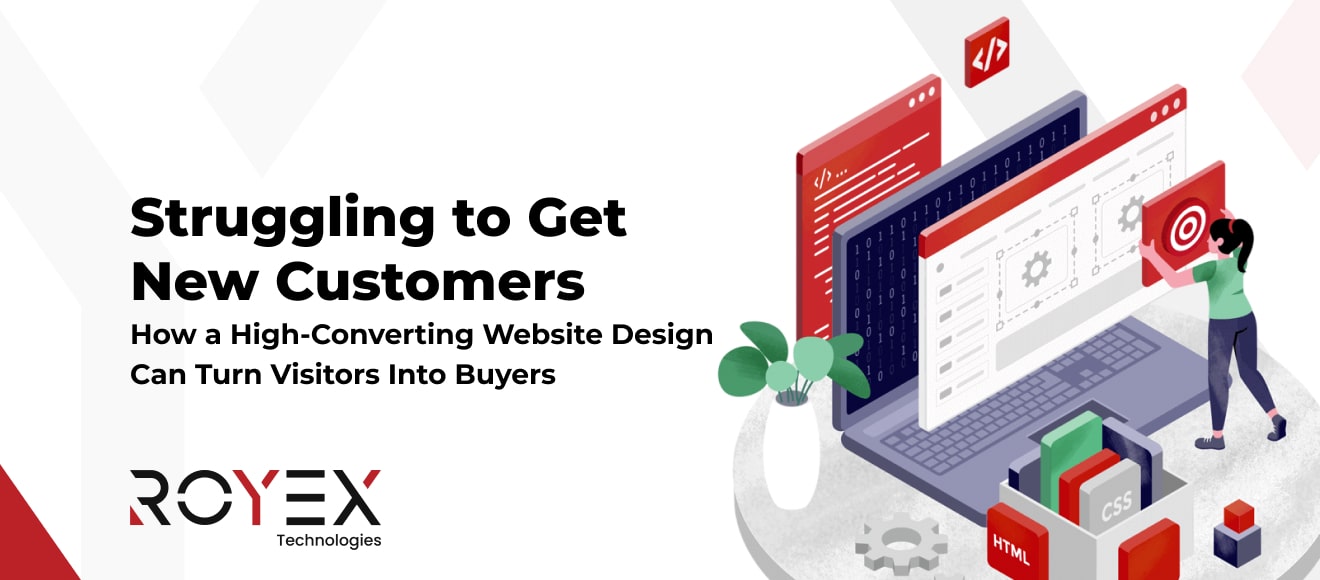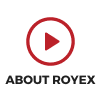
Struggling to Get New Customers? How a High‑Converting Website Design Can Turn Visitors Into Buyers
1. Why New Customer Acquisition Is Hard — and Why Your Website Might Be the Culprit
Many businesses focus on marketing budgets—Google Ads, social media, SEO—but ignore the most critical element: your website’s ability to convert visitors into leads or buyers.
Even if you’re generating traffic, if you’re not capturing leads or triggering purchases, your website is underperforming. You’ll get clicks—but not customers.
Common website conversion issues:
-
Generic messaging that doesn’t immediately communicate value
-
Confusing navigation or unclear next steps
-
Slow loading pages or poor design (especially mobile)
-
Lack of credibility elements—testimonials, case studies, trust badges
-
No personalized experience or contextual cues for visitors
If that sounds too familiar, this article lays out concrete, step-by‑step, actionable ways to fix it.
🧩 2. Start With a Conversion‑Focused Blueprint
Before design or coding begins, clarify your website’s conversion goals:
-
What is your primary conversion? (e.g. contact form submission, quote request, product purchase)
-
Who is your ideal customer (e.g. industry, location Dubai, company size)?
-
What objections do they have before converting?
-
What unique value or offer do you provide?
Once those are clear, map the visitor journey:
-
Landing page → browsing → detailed service page → lead capture (quote form, contact, booking).
Each stage needs tailored design and messaging.
🧠 3. Messaging That Resonates: Speak Directly to Customer Pain Points
Headline & hero section are your conversion power zone:
-
Use a problem‑solution‑benefit structure:
-
Problem: “Struggling to get new customers in the UAE?”
-
Solution: “Our conversion‑focused design positions your offer where your audience finds it”
-
Benefit: “See a measurable lift in customer acquisition within 90 days.”
-
Use geo‑relevant language: mention “Dubai,” “UAE,” or “GCC” where appropriate.
-
Include a clear call to action (CTA): “Request a free conversion audit” or “Get a quote today.”
🎨 4. Conversion‑Optimized Design Elements: What Actually Works
a) Layout & Visual Hierarchy
-
The hero banner should show a customer‑focused image (e.g. happy client, real office setting).
-
Use contrast and whitespace to spotlight your CTA.
-
Above the fold sections should make your conversion goal—including a short form or clickable CTA button.
b) Navigation & Journey Clarity
-
Keep navigation simple: prioritize only 3–5 top menu items.
-
Use action‑oriented menu labels: “Get a Quote” instead of “Contact Us.”
-
Add sticky CTA button or pop‑up once users scroll past a certain section.
c) Trust & Credibility Boosters
-
Include testimonials from Dubai-based clients (with photos and names if possible).
-
Show logos or badges for local certifications, industry awards, or partnerships.
-
Case studies or client results ("We increased leads by 54% for a hospitality business in Dubai").
d) Social Proof & Urgency
-
Incorporate real-time signals: “5 clients in Dubai requested a quote today.”
-
Offer limited-time promotions: “Free first‑month maintenance if you sign before Month‑End.”
e) Mobile & Performance Optimization
-
Use mobile‑first responsive design.
-
Prioritize above‑the‑fold content to load first.
-
Compress images and use lazy‑loading.
-
Ensure buttons are tapped easily, fonts are legible, and forms scroll smoothly.
⚙️ 5. AI & Personalization Tools: Make the Site Smarter
Here are tools to introduce subtle personalization and conversion boosters:
-
Chatbots: Intercom, Drift, or Tidio—qualify leads in real-time, answer common questions, and capture contact info.
-
Exit‑intent Pop‑ups: OptinMonster or Sleeknote—offer last‑minute incentives to reduce bounce.
-
Product/Service Recommendations: For ecommerce or service sectors, use tools like Nosto or Dynamic Yield.
-
Heatmaps/Behavior Analytics: Hotjar, Crazy Egg, or Microsoft Clarity to see where visitors click, scroll, or drop off.
-
Real‑time A/B Testing: Optimizely or VWO—test variations of your headline or CTA placement to see what converts better.
🧪 6. Step‑by‑Step Conversion Audit Your Team Can Run
Step 1: Install Analytics Tools
Use Google Analytics 4 and Hotjar. Set up event tracking for CTA clicks, form submissions, scroll, and time-on-page.
Step 2: Run Heatmap & Session Recordings
Watch where users hesitate, where they bounce, and which form fields get abandoned.
Step 3: A/B Test Critical Elements
Test two versions of your hero message, CTA button color, or headline variant to see which gets higher conversions.
Step 4: Speed & Mobile Review
Use Lighthouse (Chrome DevTools) or GTmetrix to score site performance. Aim for < 2 seconds load time.
Step 5: Social Proof & Trust Upgrades
Gather testimonials, ask customers for quotes, add industry badges, and integrate case study summaries.
Step 6: Lead Capture Optimization
-
Shorten forms to only essential fields.
-
Offer optional call scheduling.
-
Implement conversational forms (Typeform or Landbot).
Step 7: Optimize Forms & CTAs
Make CTAs bold, action‑oriented, and strategically placed in multiple places (hero, mid‑page, footer).
Step 8: Review Copy & Persuasion Flow
Ensure headings address pain‑points, benefits are obvious, and copy is scannable with bullet lists.
Step 9: Automation & Reminder Triggers
Use tools like Mailchimp or ActiveCampaign to follow up leads automatically after form submission.
Step 10: Continuously Monitor & Iterate
Review conversion metrics weekly and tweak layout, messaging, or offers until performance improves.
🌐 7. Measuring What Matters: Tools to Track Conversion & Behavior
Essential Analytics Stack:
-
Google Analytics 4: tracks sessions, event completions (forms, clicks, scroll).
-
Hotjar or Microsoft Clarity: heatmaps, session recordings, drop-off analysis.
-
Google Tag Manager: to configure event‑tracking (without editing website code).
-
CRM / Marketing Automation: HubSpot, ActiveCampaign, or Zoho CRM to manage captured leads and track ROI.
Metrics to Monitor:
-
Conversion Rate (e.g. form submission ÷ visit count)
-
Bounce Rate on landing and service pages
-
Scroll Depth & Time on Page — indicates engagement
-
Form Abandonment Rate
-
CTA Click-Through Rate
-
Lead-to-Customer Ratio in your CRM
🛠️ 8. Proven Conversion‑Boosting Tactics You Can Use Today
|
Tactic |
Why It Works |
Suggested Tool |
|
Hero CTA Form |
Captures lead before they scroll |
Typeform, Landbot |
|
Live Chat |
Converts unknown visitors to engaged prospects |
Intercom, Drift |
|
Sticky CTA Button |
Keeps goal visible during scroll |
Custom dev or plugins |
|
Social Proof Pop‑in |
Shows recent client actions |
TrustPulse |
|
Geo‑Targeted Messaging |
Personalizes experience for Dubai visitors |
IP-based targeting |
|
Exit Intent Popup |
Offers discount to reduce cart abandonment |
OptinMonster |
|
Real‑Time Chat Triggers |
Engage high-intent visitors |
Tidio AI |
🤝 9. Work with a Proven Partner: Why Royex Technologies Delivers High‑Converting Design
For companies in Dubai seeking real customer acquisition through their website, Royex Technologies – Web Design Company Dubai offers:
-
Local Market Understanding: Dubai-specific insights into buyer behavior, language, UX expectations, and industry norms.
-
Conversion First Philosophy: Every design decision—from color palette to CTA placement—is aligned with maximizing leads or sales.
-
Full-Service Expertise: From landing page copywriting, UX design, to CRO tools and analytics setup—Royex covers it all.
-
Data‑Driven Iteration: Post-launch monitoring and optimization to continuously lift conversion rate.
-
Trusted Portfolio: Hundreds of satisfied clients across sectors like hospitality, real estate, fintech, and retail in the UAE.
🧭 10. Final Thoughts: Transform Your Website into a Sales Asset
If you’ve been disappointed by traffic without conversions—or spending on ads without ROI—it’s time to rethink your website. A well-designed, conversion‑focused website doesn’t just look good; it predicts needs, builds trust, reduces friction, and drives tangible business growth.
Here’s your path forward:
-
Audit your current website using tools like Hotjar and GA4.
-
Define clear conversion goals and map the visitor journey.
-
Redesign with strong hero messaging, smart CTAs, and UX elements that guide behavior.
-
Implement personalization and conversion tools (chatbots, pop‑ups, geo-targeted messaging).
-
Monitor continuously and iterate.
Need expert help to implement this strategy? Let Royex Technologies build you a high-converting, customer-acquisition-focused website designed to grow your business in Dubai and beyond.





